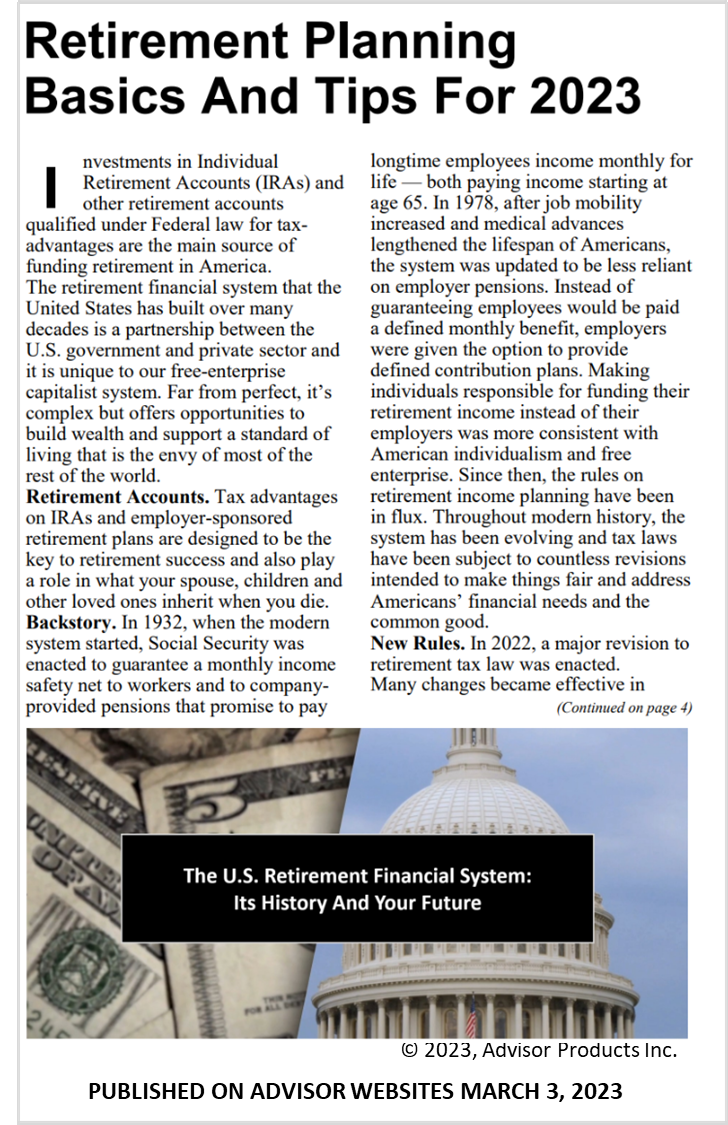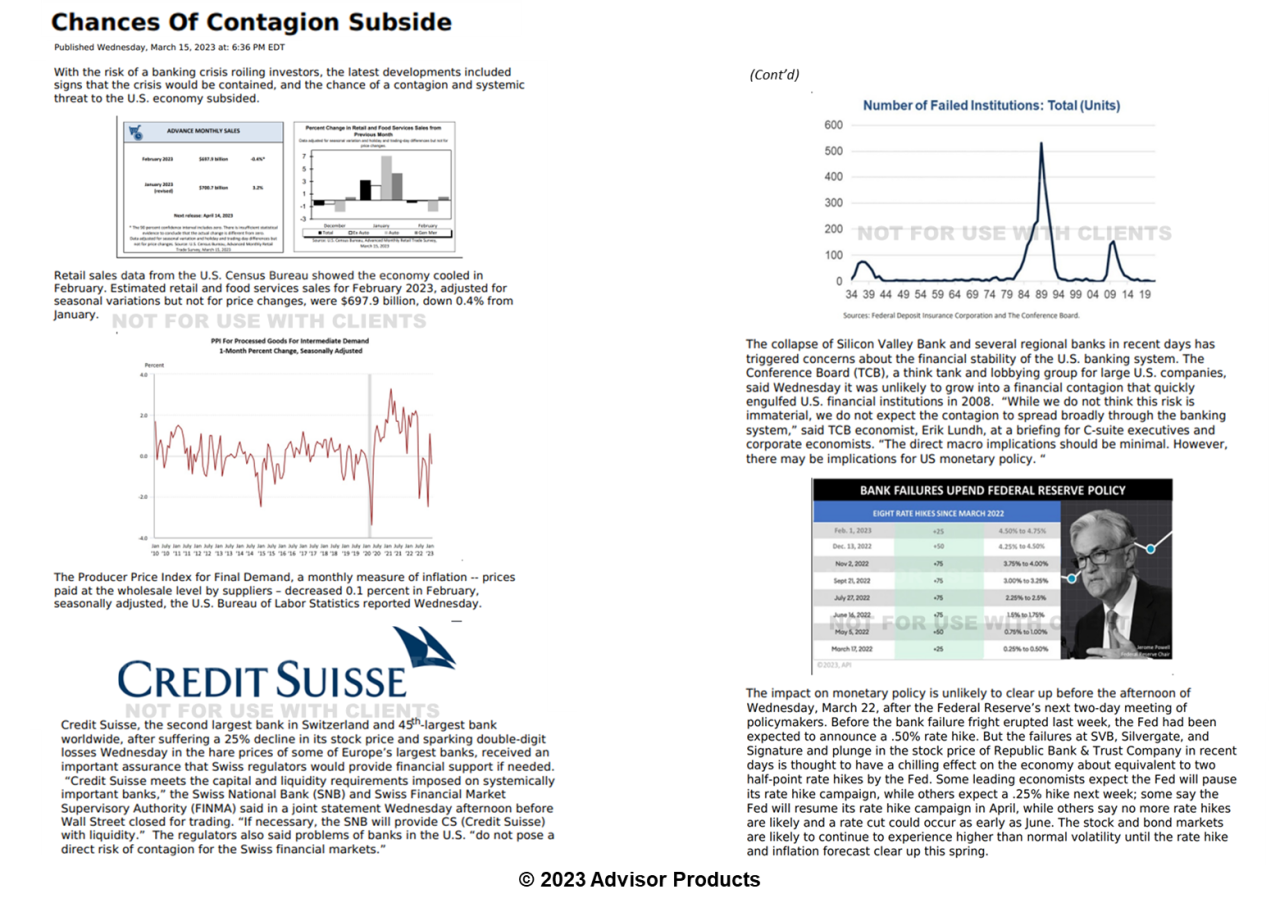- How it works
- Marketing Tools
- Competitive Research
- Finra-reviewed content
- Downloadable Content
- Advisor Education
- Advisor Websites
- Marketing Tips
- Crm Software Integration
- Search Engine Optimization
- Email Marketing Solutions
- Social media Marketing
- Advisor Marketing Videos
- Advisor Print Newsletters
- Advisor Lead Generation
- Expert Market Intelligence
- Branding and Print Materials
- Advisor Blogs
- Advisor Webinars
- Advisor Presentations
- Advisor Client Portals
- Webinars
- Advisor Google And Facebook Ads
- Advisor Public Relations
- About
- Resources
- Login
- Schedule A Demo
Marketing Tips
Search Engine Optimization
Learn the top factors that affect your search listings, tips for website construction, how to develop and organize SEO-friendly content, how to use Google My Business, and the importance of social media on SEO.
Email Marketing Tips
Learn about compliance, how to build your list, get suggestions on how to create a strong cam-paign, master the art of creating a powerful email, get tips on lay-out, learn how to create strong calls-to-action, and get subject line DOs and DON’Ts.
Public Reactions Show Industry in Crisis
It seems every day we're reading a new instance of the public's anger at the financial services industry. The latest case illustrates how in many ways the industry remains out of touch with its customers.
As the Obama administration's "pay czar" has been grappling with the decisions by companies who've received assistance via the Troubled Asset Relief Program to award controversial bonuses, anger has increasingly been aimed at the financial services industry as a result of their refrain over these issues. While the industry continues to assert the bonuses are necessary to keep quality people, the taxpayers who funded these bailouts express frustration and look at things much more simply. In fact, they essentially ask how valuable are these employees if many of them were around while the organizations at which they work were sinking.
I don't intend to take either side on the issue in this column, but rather point out that the poor, and in many cases nonexistent, messaging used by the companies to describe the need for the bonuses and why the special master should approve them reflects a big disconnect between them and the rest of the world. It's to the industry's advantage to think like the average American more often. While bonuses are common in the financial services industry, and in many cases can represent a large portion of overall compensation, most of America doesn't work in industries where that's the case. As such, they associate bonuses with a reward for going above and beyond the call of duty. Why then, they ask, would you be rewarding any bonuses in an organization that's struggling to survive.
Beyond the compensation argument, there's the retention agreement; again, this reflects a disconnect. While they claim the bonuses are necessary to retain valued people, the average American reads in the newspaper about unemployment that's reached the highest level in some 30 years, leading them to deduce that there's not a plethora of places that would hire these individuals.
The automakers, who also received public aid, did many things that also reflect an ignorance of basic public relations practices, the most infamous of which included the private jet flights to D.C. to ask for money. However, they did do one thing that was very smart and that was to run ads in major papers across America thanking the taxpayers for their support during this difficult period. In contrast, the financial services industry has appeared to the public to be almost combative in response to the government's intrusion into their business and the widespread judgements that have come from a variety of venues, including Congress. It's almost as if they're trying to say they did nothing wrong to begin with, when the average American remembers a $787 billion bill they received, much of which went to support the industry, both directly and indirectly.
Meanwhile there have been widespread calls for increased regulation and other responses as a result of the crisis. While it's doubtful much will come of those calls, at least in the short term, it would be to the industry's advantage to play nicer with the public because trust in the industry has severely been eroded. Winning back that trust is a long-term effort, but it starts with recognizing the roles everyone played and doing a bit of a mea culpa, something we haven't seen much of thus far.
Questions?
How and why does the Advisor Products system work?
In today’s times, when consumers have become more demanding and tech-savvy, financial advisors must use content marketing to attract, inspire, engage, and convert their prospective customers.
A good content strategy is focused on developing and distributing consistent, valuable content to engage and retain prospective customers and target audience, via your website. Our content library provides financial advisors with fresh, high-quality financial content that is updated regularly, improving SEO along the way. And our automated e-newsletter and social media tools allow advisors to reach out to clients and prospects in an easy-to-use manner, providing frequent touch points for optimal brand building.
- Differentiate you from competitors
- Expose clients and prospects to your brand message more frequently
- Build an ongoing relationship with customers
- Increase your follows and fans on social media
- Drive more prospects to your website
- Help convert prospects into leads
- Increase number of pages indexed in Google
What products and services do you offer?
Can I buy services if my website is not hosted with you?
What can I expect during the onboarding process?
What if I have questions after my website is built?
Seeing is Believing.
See how easy it is to get started with our all-in-one digital marketing platform that drives leads, encourages referrals and increases client engagement.
SCHEDULE A DEMO






